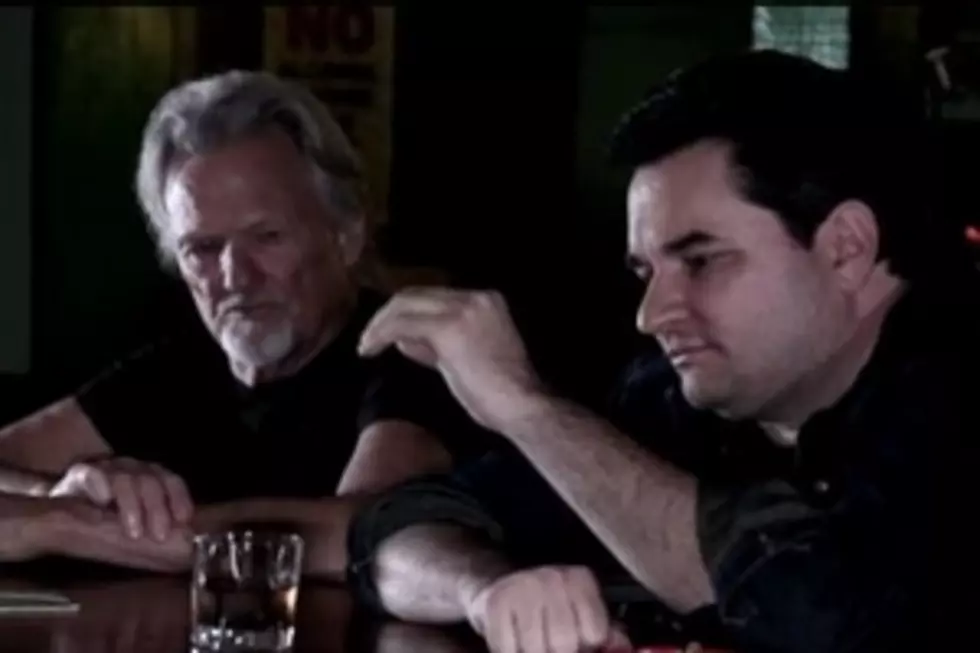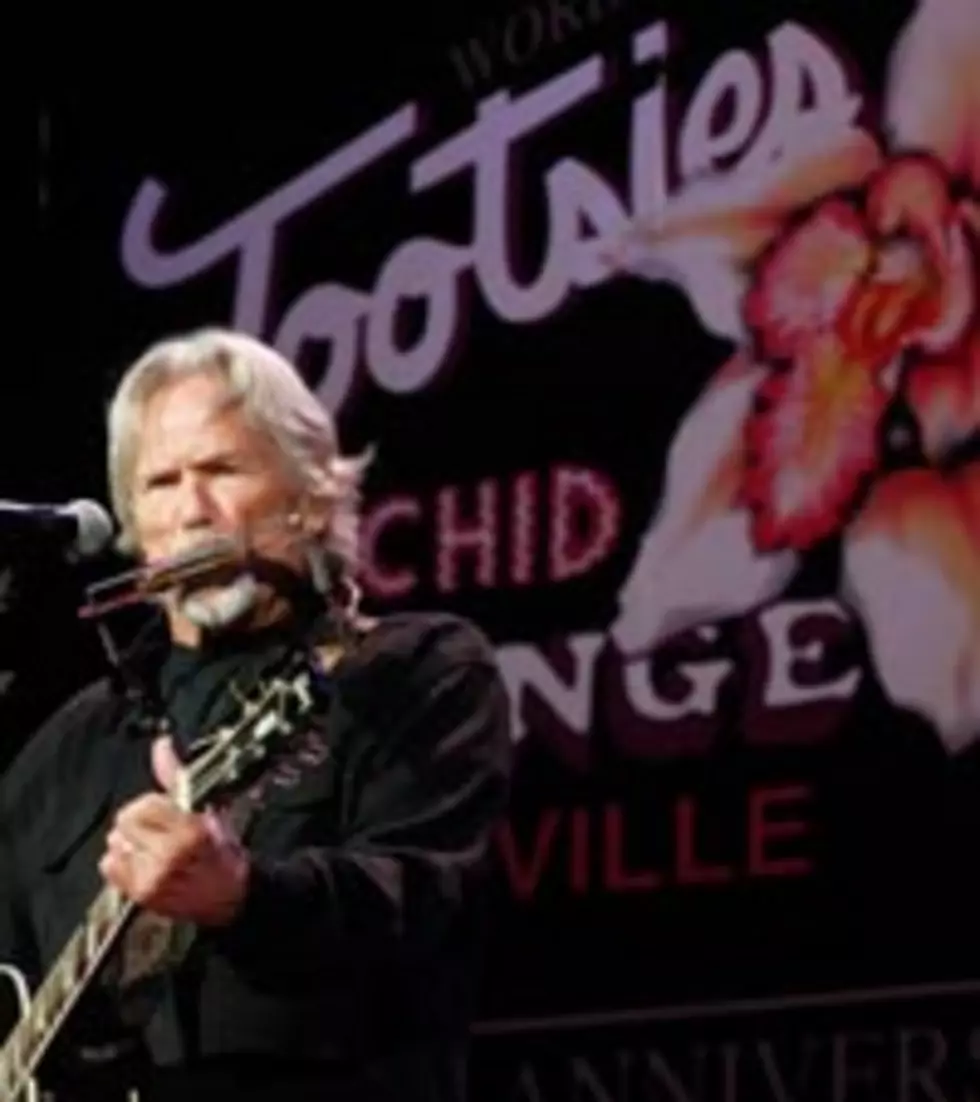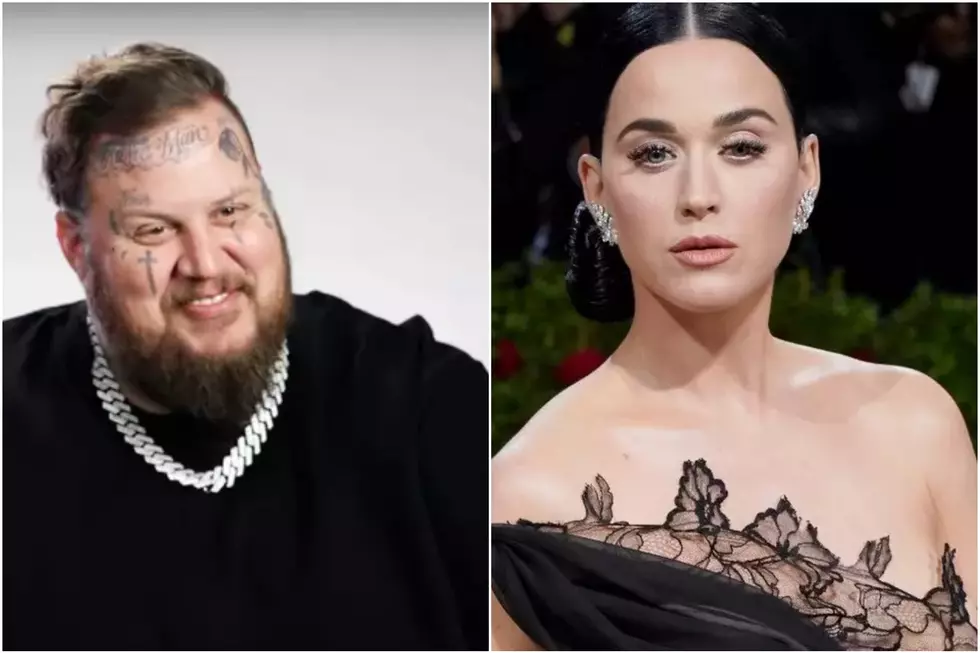
Dean Miller Interview: Singer-Songwriter Talks Long Layoff, New Album + Video
Dean Miller has returned with a new album after a layoff of several years.
The singer-songwriter has had various deals with different labels and released several albums over the course of his career. But, discouraged by the disheartening slog through Music City's byzantine layers of decision-making, in more recent years Miller has turned his attention to other aspects of the business, including writing, consultation and production.
He returned to active duty with the December release of ''Til You Stop Getting Up,' which has garnered strong reviews and word-of-mouth support. Miller drafted longtime family friend Kris Kristofferson for the video for the album's title song, which he also directed.
The Boot caught up with Miller to discuss the new album and video, incorrect perceptions, the difficulties of the business and more in the following interview.
Why such a long layoff between projects, and what made this the right time to jump back in?
Well, I don't know if you've heard about this or not, but the music business is hard! [Laughs.] So there's that. But also, I've been at this a long time. I was born into the music business. [Editor's note: Miller's father was Country Music Hall of Famer Roger Miller.] I've had a lot of close calls and record deals and everything else, and I think [I] just got to a point where I just gave up on myself, and took a different route.
I spent several years doing other things, including dog training. I invented a whole method of dog training, and I just immersed myself in that. But I was always writing songs. I went through some old songs, and I found this song, ''Til You Stop Getting Up,' that I had written several years ago, and nothing had ever been done with it. It was a work tape. But as I was listening to it, my own song kinda spoke to me, and I realized, I was the only one who had stopped getting up. I was the only one who had given up on myself.
And I had all these songs, and I thought, 'I'm too worried about what's gonna happen, that nobody's gonna want it.' All of that stuff we do to ourselves. And I thought, 'If I just record this stuff, and have it there, somebody will hear it. At least it will be there, and I'll get this stuff out of me, and I'll fulfill that drive that I have to do it.'
I let [the business] hurt my feelings for a long time. But that doesn't hurt anyone but me.[/pullquotes]
So I started putting together a record, and as I did, it started growing, and more people got involved, and then I had the concept to put Kris Kristofferson in this video, because the story is basically his story. He was a boxer, and a fighter.
Long story short, that's how it all came to be. It came out of a newly revived dream.
You mentioned how difficult the business is -- that runs contrary to a common perception that music business is "easy money."
[Laughs.] Yeah, it's a breeze. And then that other horrible misconception, 'Well, if your dad was successful, you must be successful.' Which I have dealt with my whole life.
Do people assume that you inherited a lot of money?
Yes, and that's not true. And also, they think, 'Well, it must be easy for you, you just have to ride on your dad's coattails.' Which, I hate all that stuff people say. It makes it seem like I just use my dad to get somewhere. You know, my dad died 20-some years ago. Obviously I've been doing stuff on my own for a long time.
Even if he were still alive, it's not like he can make stuff happen for you. That's just not so.
Right! It's a weird perception people have of the music business.
What is further from the truth -- that it's easy money, or that your family connections make it easier for you?
I think family connections get you the meeting, but people look at you twice as hard as they would if you were just a clean slate. 'Hey, your dad was a genius, in the Hall of Fame, won 11 Grammys, seven Tony awards -- okay, show us what you do.' [Laughs.] Okay.
I always had the curse, when I was starting out, that every record company thought the way to go was to market everything as Roger Miller's son. I don't know where that started, but it was always like, put that in front of everything else. And it shouldn't be the case. It's not the way to go.
This is the first release you've had since everything's gone totally digital. Do those changes make it easier or harder for you in terms of getting out there and competing on any kind of a playing field?
Infinitely easier. I think it's part of why I did this, because you no longer have to go to somebody and ask a committee, first of all to believe in you, sign you, and then have endless meetings about nothing [Laughs] ... and really, honestly, it's just like with any kind of an investment. Record companies have to invest money in you as a product, and they're always nervous about doing that, unless you have some massive, proven track record. So that nervousness translates into you having one hand tied behind your back whenever you try to do something.
Now, I just have an instinct to go do it, and I don't have to ask people if it's okay to do it. And as long as I keep it cheap, I market my own stuff, and the thing that people don't realize is, when you're doing it yourself, you keep the money yourself. [Laughs.] So hey, I'd rather have this job and sell less but keep all the money.
As long as you control the budget well, and that's something that an individual can do far better than a record company.
Absolutely, This has been a real education. I've spent several years producing other people and working on other people's projects as a consultant, and I've used all of that information on myself now.
What's the first step in a project, once you've decided to do one?
I don't know how other people do it, but because I write my own songs, I start picking the songs that resonate with me, and then start thinking of what would go together well, and then start going over the songs and picking what I connect with. And the money is really the whole thing; you've to either find the money, save the money or earn the money. But because of what I do in producing, I have, over the years, [built] a network of people that I can call upon that are the best in the world, and keep it within a reasonable budget.
You mentioned the video earlier. You directed that -- where did you get the skill set to do that?
I don't know. [Laughs.] I think technology has gotten to a place now where we can just, if you want to do it, go make it and do it yourself. But I did study film and acting in college, and I've been in some films and some TV projects.
Kris Kristofferson is my hero, and has been for years, not only professionally, but personally. I just thought he completely fit that character, that image of an old fighter sitting in a bar, and my family was friends with him from the time I was born. And I thought, 'Why not? It can't hurt to ask.'
I directed the video, the concept's mine, and every inch of it, I sat with the editor over it.
Do you find that going the independent route changes the way you actually make music?
Yes. The best thing is, going into this, I knew I didn't have a budget to compete on terrestrial radio. So I was free to make music that didn't have to try and chase that. I think when people try to chase that, it's not organic. To chase that stuff is like dressing a certain way to try to get a date. [Laughs.] You've got to be yourself. I think right now the industry is full of people trying to be something that they think other people will like or buy, instead of just organically presenting something original.
You've got to keep getting up one more time more than the next guy.
In the days of great music, it was a matter of, work on your craft, and then one day someone gives you a chance, and you're off and running. Now it seems to start with a guy in an office somewhere going, "We need a duo." [Laughs.] Then they go create one, and they get people who are willing to sign their life away to be that duo.
Don't get me wrong, there are still great, great artists, but I certainly don't think most of the labels are as interested in discovering great music as they are in doing their job, and the money coming in. And there's nothing wrong with that; that's just one part of the business. But what I'm doing is totally different. My thing is kinda like having a Mom and Pop store, and then Walmart's over there doing what they do. I'm just not even trying to play on the field that Walmart's on.
I'm not bitter about the whole thing. I just think that's a business, and what I'm doing over here is making creativity for the sake of creativity. I let [the business] hurt my feelings for a long time. But that doesn't hurt anyone but me. Nobody else cares if I'm sitting there feeling sad or defeated. [Laughs.] Nobody else cares. And that's what the whole theme of my record is about: You ain't a loser 'til you stop getting up. You've got to keep getting up one more time more than the next guy.
More From TheBoot









